An
Introduction to
MORAL
THEOLOGY
SECOND EDITION


Nihil Obstat
Rev. Basil Cole, O.P., S.T.D.
Censor Deputatus
Imprimatur
 Theodore Cardinal McCarrick
Theodore Cardinal McCarrick
Archbishop of Washington
June 20, 2003
The Nihil Obstat and Imprimatur are official declarations that a book or pamphlet is free of doctrinal or moral error. No implication is contained therein that those who have granted the Nihil Obstat and Imprimatur agree with the contents, opinions, or statements expressed.
With few exceptions (including those appearing in quoted material incorporating biblical excerpts from such editions as the New American Bible), most Scripture texts in this work are taken from the Catholic Edition of the Revised Standard Version of the Bible (RSV), copyright 1965 and 1966 by the Division of Christian Education of the National Council of the Churches of Christ in the United States of America. Used by permission.
All rights reserved.
Catechism excerpts are from the English translation of the Catechism of the Catholic Church, Second Edition, for use in the United States of America, copyright 1994 and 1997, United States Catholic Conference Libreria Editrice Vaticana. Used by permission. All rights reserved.
The English translation of Veritatis splendor is from the Vatican website, www.vatican.va.
The author is grateful to all copyright holders without whose material this book could not have been completed. Every reasonable effort has been made to determine copyright holders of excerpted materials and to secure permissions as needed. If any copyrighted materials have been inadvertently used in this work without proper credit being given in one form or another, please notify Our Sunday Visitor in writing so that future printings of this work may be corrected accordingly.
Original edition copyright 1991, 1994, and second edition copyright 2003 by Our Sunday Visitor Publishing Division, Our Sunday Visitor, Inc.
All rights reserved. With the exception of short excerpts for critical reviews, no part of this work may be reproduced or transmitted in any form or by any means whatsoever without permission in writing from the publisher. Write:
Our Sunday Visitor Publishing Division
Our Sunday Visitor, Inc.
200 Noll Plaza
Huntington, IN 46750
ISBN: 978-1-931709-92-7 (Inventory No. T49)
LCCN: 90-60638
Cover design by Monica Haneline
Interior design by Sherri L. Hoffman
PRINTED IN THE UNITED STATES OF AMERICA
Dedicated to my grandchildren Christopher Michael May, Elizabeth Ann May, Alexandra Marie (Sasha) Fairchok, Anastasia Teresa (Anna) Fairchok, Kathryn Blair (Katya) Fairchok, Megan Flora May, Peter William May, Margaret Mary (Maggie) May, Katherine Anne (Katie) May, Christina Marie May, Joachim Gabriel Romanosky, and to grandchildren-to-be and children of their generation.
Contents
CHAPTER ONE
Moral Theology: Its Nature, Purpose, and Biblical Foundation
CHAPTER TWO
Human Dignity, Free Human Action, Virtue, and Conscience
CHAPTER THREE
The Natural Law and Moral Life
CHAPTER FOUR
Moral Absolutes
APPENDIX I TO CHAPTER FOUR
St. Thomas and Moral Absolutes
APPENDIX II TO CHAPTER FOUR
Pope John Paul II and Moral Absolutes
CHAPTER FIVE
Sin and the Moral Life
CHAPTER SIX
Christian Faith and Our Moral Life
CHAPTER SEVEN
The Church as Moral Teacher
CHAPTER EIGHT
Christian Moral Life and John Paul IIs Encyclical Veritatis Splendor
APPENDIX
Christian Moral Life and the Catechism of the Catholic Church
FOREWORD TO THE FIRST EDITION
I t is a pleasure for me to introduce Dr. William Mays An Introduction to Moral Theology. In succinct and perceptive fashion, Dr. May introduces the reader to fundamental notions of Catholic moral teaching. I commend this volume to the clergy, to seminarians, to catechists, and to all who wish to discover more profoundly what it means to follow the Lord Jesus.
We live in an age that seems to have lost its moral moorings. Too many people are genuinely confused about what is right and what is wrong; some doubt that an authentic standard for judging human behavior exists. Church teachings, particularly those related to the transmission and preservation of human life, often meet with rejection. All too often, Catholic morality is regarded as a series of arbitrary obligations having nothing to do with our dignity as human persons called to eternal life in Christ Jesus.
This introduction counters such confusion with clarity and depth. It helps us understand how the Churchs moral teaching is rooted in the nature of the human person created in the image and likeness of God. Indeed, as the grace of Christ takes hold of our lives we see ever more clearly the wisdom of the Churchs moral teaching.
Dr. May has devoted his life to studying the Churchs moral teaching and to communicating that teaching to others. He is a man of deep faith and scholarship, and we are privileged that he has shared his wisdom with us. This latest book of his deserves a very warm welcome.
 JAMES CARDINAL HICKEY
JAMES CARDINAL HICKEY
Archbishop of Washington
INTRODUCTION TO THE SECOND EDITION
A lmost ten years have passed since this work was first revised (1994) in order to incorporate the teaching on the moral life presented in the Catechism of the Catholic Church and in Pope John Paul IIs encyclical on fundamental questions of the Churchs moral teaching, Veritatis splendor (The Splendor of Truth). Since 1994, important new works in moral theology have appeared, and it will be useful to refer to some of these and to incorporate particularly helpful matter found in them. I will expand my own presentation of moral theology, in particular to provide a consideration of the role that virtue plays in the moral life. Although I have sought to integrate biblical teaching on the Christian moral life in the chapter Christian Faith and Our Moral Life (Chapter Six in this revised edition), I believe it appropriate and necessary to consider the biblical foundation of moral theology more explicitly. Consequently, I have devoted a part of a new first chapter to this question. Finally, I will correct some errors I made in the earlier editions.
In preparing the present edition, I have reorganized the text. I have incorporated the opening pages of the Introduction to the First Edition (1991), which was included in the 1994 edition, into a new first chapter, entitled Moral Theology: Its Nature, Purpose, and Biblical Foundation. In this chapter, I expand considerably the brief observations made in the 1991 and 1994 editions on the subject of moral theology and also, as noted already, consider more explicitly the biblical roots of moral theology.
The chapter on human dignity, free human action, and conscience, which was Chapter One in both the 1991 and 1994 editions, is now Chapter Two; in it I have added for this edition a section on the role of virtue in the moral life.
The subsequent chapters which are concerned with the natural law and moral life, moral absolutes (with appendices on the teaching of St. Thomas Aquinas and Pope John Paul II on this issue), sin and the moral life, Christian faith and the moral life, and the Church as moral teacher present material covered in Chapters Two through Six of the first two editions. I have, however, made significant and substantive revisions especially in (1) the chapter devoted to natural law (Chapter Three), both to take into account important recent literature (for example, Martin Rhonheimers
Next page

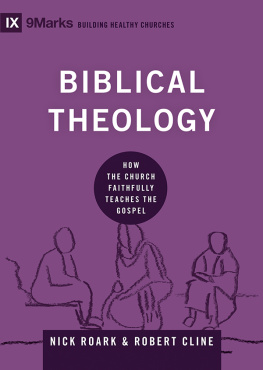
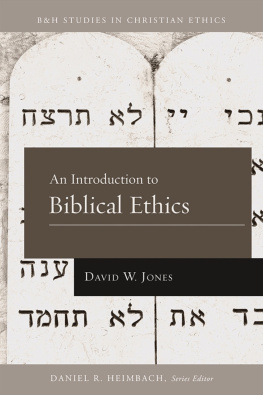
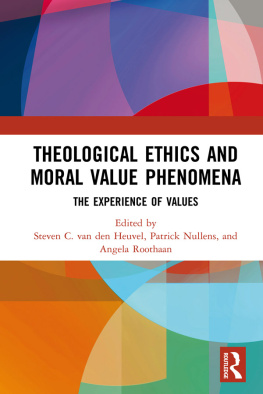
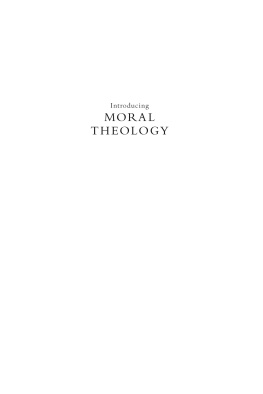
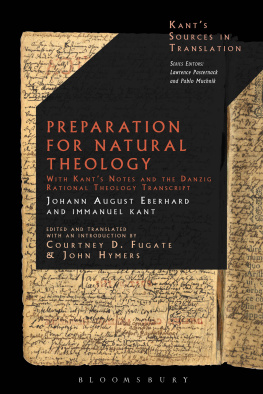


 Theodore Cardinal McCarrick
Theodore Cardinal McCarrick